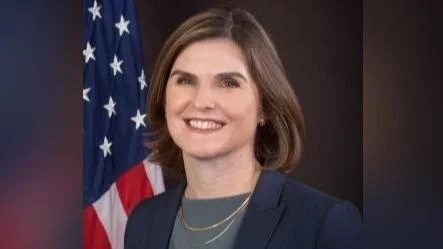For the second consecutive year, the traditional Palm Sunday procession from the Mount of Olives into the Old City of Jerusalem saw limited participation from foreign pilgrims due to the persistent Israel-Hamas conflict in Gaza. Approximately 4,000 individuals, mainly Christians from Jerusalem, the Galilee, and some from the West Bank, foreign diplomats, NGO workers, religious orders, and Ethiopian Orthodox pilgrims, joined the event.
The Latin Patriarchate of Jerusalem had issued 6,000 travel permits for West Bank Christians to partake in Holy Week activities, with an additional 2,000 anticipated but not yet confirmed.
Batrice Batrice from Nazareth, who attended the procession with his family, commented on the reduced joyousness of the event compared to previous years. He expressed the importance of maintaining hope. "It was happier when there were many pilgrims here. Ten years ago these roads were full of people," he said.
Despite the intermittent rain, the procession unfolded as planned, led by a Christian scouts troop. Members of various Neocatechumenal Way communities, Franciscan friars, and the Filipino Catholic community contributed with music and song. Violeta Pasco from Tel Aviv emphasized the need for rejoicing despite challenges: "Even when it is difficult we need to rejoice. No one will stop us from rejoicing. It is our faith."
The day's events began with a palm procession and Pontifical Mass at the Church of the Holy Sepulcher, led by Latin Patriarch Cardinal Pierbattista Pizzaballa. He urged the congregation to focus on faith, unity, and hope despite prevailing hardships.
In his message, Cardinal Pizzaballa stated, "We are here today, local Christians and pilgrims, all together, to say strongly that we are not afraid... We hope and believe in the love that overcomes everything." He maintained that love for the city and faith remains unshaken.
Janice Stepp, visiting from Florida, mentioned feeling safe despite initial trepidation, and shared her group’s efforts to support the local Christian community through purchases in Bethlehem.
Meanwhile, the Diocese of Jerusalem of the Episcopal Church condemned an April 14 bombing of their Ahli Arab Hospital in Gaza. The Israeli airstrike, which Israel claimed targeted Hamas, damaged key medical and church facilities.
The International Committee of the Red Cross and the U.N. human rights office have highlighted the severe humanitarian impact of ongoing military actions in Gaza. According to Gaza's health ministry, more than 1,500 individuals have lost their lives since the conflict's escalation on March 18.
Cardinal Pizzaballa described the Gaza situation as "dramatic, catastrophic, shameful," urging the global community to remain aware and engaged. Meanwhile, Catholic families in Holy Family Parish in Gaza remain steadfast amidst uncertainty.
Judith Sudilovsky reports for OSV News from Jerusalem.
 Alerts Sign-up
Alerts Sign-up





